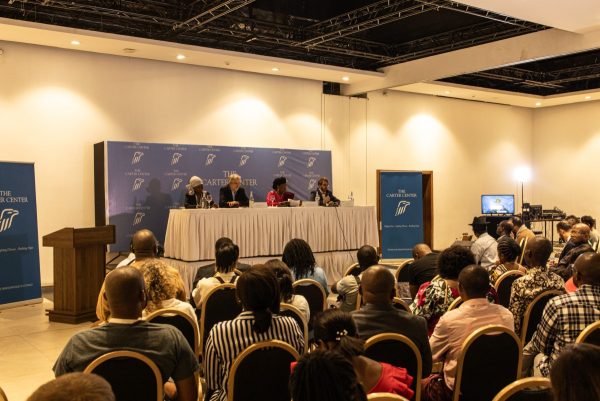The Democratic Republic of Congo (DRC) government made an official declaration on Tuesday, firmly opposing and subsequently outlawing a scheduled opposition-led demonstration set to take place on Wednesday. The motivation behind the planned protest was to voice opposition against purported “irregularities” in the presidential and general elections that occurred last week. This development came after five opposition presidential candidates, including prominent figures such as Martin Fayulu and Nobel Peace Prize laureate Denis Mukwege, communicated their intention to organize the demonstration through a letter addressed to the governor of Kinshasa, a letter that was subsequently published on Saturday.
However, the government, still awaiting the announcement of definitive election results, justified its decision by expressing concerns about potential disruptions that the protests might cause. Interior Minister Peter Kazadi emphasized the government’s stance during a press briefing, stating, “Tomorrow’s demonstrations are intended to undermine the electoral process — the government of the republic cannot accept this. I can assure you that there will be no such march.”
The opposition leaders who endorsed the aforementioned letter, denouncing the elections as a “sham,” include Martin Fayulu, who notably claimed victory in the 2018 elections, and Denis Mukwege, recognized globally for his tireless efforts in aiding victims of wartime sexual violence. In their letter, the opposition leaders articulated their dissatisfaction with the electoral proceedings, citing observed irregularities during the voting process as the basis for their planned demonstration, congo.
Moise Katumbi, another key opposition figure and former governor of the southeast Katanga region, went a step further by calling for the outright annulment of the elections. The complexity of the situation is underscored by the fact that nearly 44 million voters, out of the approximately 100 million inhabitants of the vast country, were eligible to cast their ballots in the elections held last Wednesday. Due to numerous logistical challenges, the voting period was officially extended by a day and, in some remote areas, continued until Christmas Day, congo.
The opposition, pointing to what they described as “total chaos” during the voting process, expressed their discontent with the proceedings. Despite these concerns, extremely partial results released by the electoral commission show incumbent President Felix Tshisekedi in a commanding lead, with 80 percent of roughly 1.8 million counted ballots favoring his candidacy.
Conclusion: Congo

As the political landscape in the DRC continues to unfold, tensions are palpable, with the government staunchly resisting the opposition’s plans for public demonstration, and the opposition leaders standing firm in their resolve to protest against what they perceive as electoral irregularities. The anticipation for the release of final election results adds an element of uncertainty to the already complex and contentious situation, congo.
Source: guardian.ng










